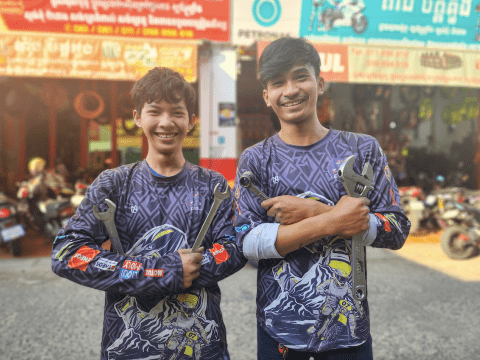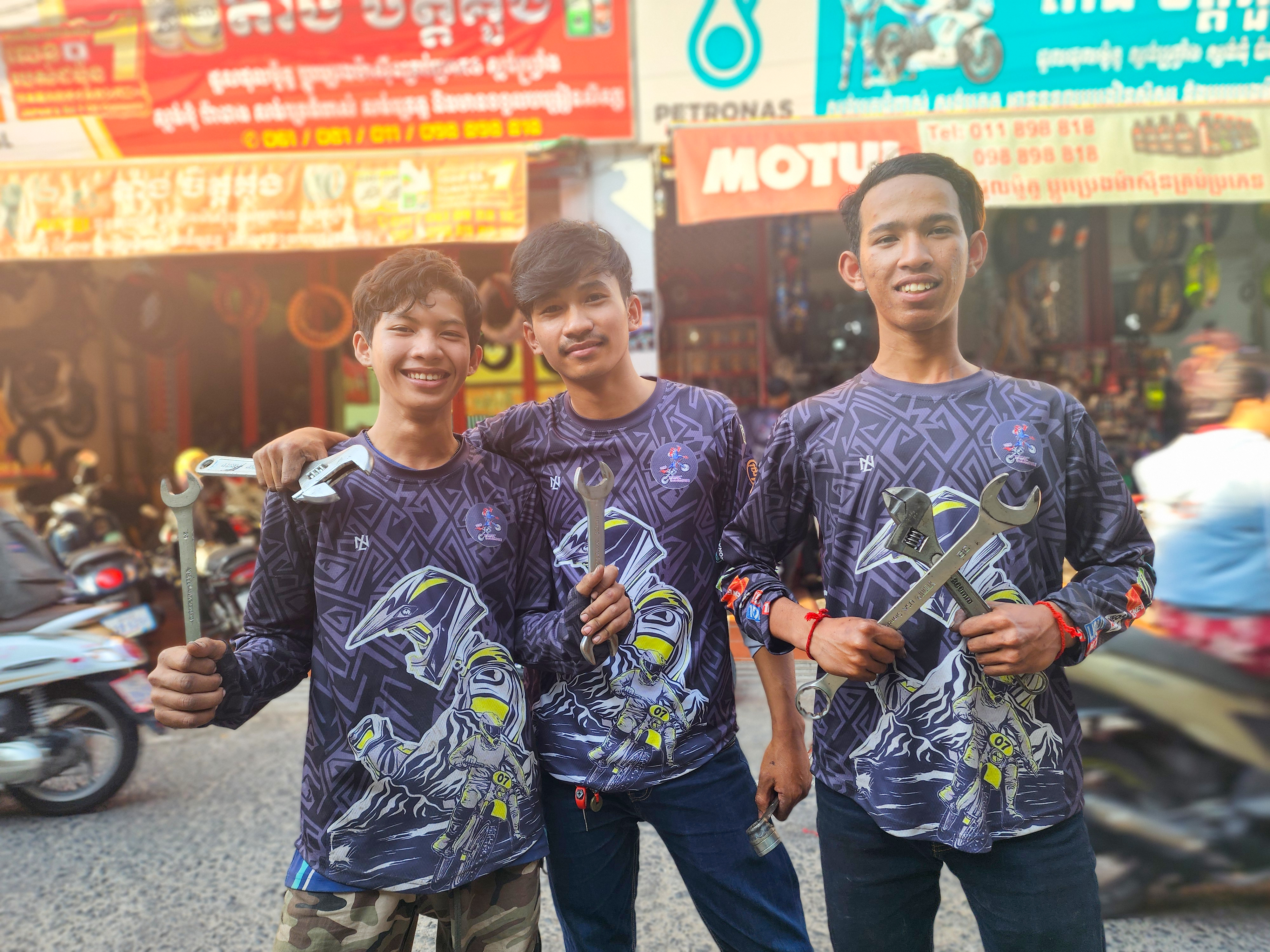A journey from vulnerability to an opportunity for youth change: Heng’s story

Tragically, Heng’s father, aged 41, suffered a severe accident last year while working as a car driver, burdening the family with medical expenses and loss of stable income. With his father now only having limited earnings as a gardener, Heng, now 17 years old, was forced to drop out of school in the 9th grade to support his family following his father's accident.
Heng’s first jobs included tending cows and reselling flowers from nearby farms, earning between $2.15 and $2.86 daily. “This work was unstable,” Heng said.
Heng was also vulnerable to negative influences around him: “My family was amongst families living in a small, deteriorating house on temporary land, surrounded by challenges such as alcoholism, gang activity, drugs, and violence in the village. Like many youths in my community, I was at risk of giving in to negative influences,” said Heng.
Cambodia has the second-lowest literacy rate among ASEAN countries, after Laos. Youth in rural and poor households are likely to drop out of school early and seek various kinds of work, mostly with low wages and unsafe working conditions (UNDP, 2019). This leads to the prevalence of low-skilled labour due to people’s background of low educational attainment. Another key challenge is the mismatch between job qualifications and the skills required for a job. Some employers struggle to fill their company’s posts with qualified candidates while young people are in stuck in low-skilled, low-wage jobs.
Recognising the urgent need for sustainable opportunities for at-risk youth, and to address these issues, World Vision International in Cambodia initiated the Youth Vocational Skills Improvement programme implemented under the Urban programme. Many youths in the community were recruited into the vocational skills programme according to their interests. Heng is one of these youths who were recruited based on interests and a family consultation.

In 2024, 298 youths, including 205 young women, were selected for vocational skills training. They have been trained in eight areas, including hair cutting and motorbike repair The initiative also aims to improve the knowledge and skills of youth in entrepreneurship, such as leadership and management skills.
Heng enrolled in a motorcycle repair training course provided by the Youth Vocational Skills Improvement programme, where he learnt hands-on skills and earned a regular salary. “This skill will give me a stable job and help me secure a better future for my family,” Heng shared.
His efforts impressed the motorbike shop owner, who even provided transportation for Heng to and from the shop. “He is a hard-working boy—he’s committed to learning and works hard,” said the shop owner.
Heng received $25 weekly as an encouragement and incentive. During his training, Heng also earned around $10 per week repairing his neighbours’ motorbikes. “I started by offering basic services to my neighbours; this pleased and encouraged me”, Heng explained.
Upon completing his training, he continued working at the motorbike shop as an apprentice but earned only $180 monthly. “I’m not fully satisfied with this income amount, but I feel happy and encouraged because it’s my first step in a meaningful career. I hope to earn a higher salary in the future, and one day, I wish to own my motorbike repair shop,” Heng shared.
Heng’s income now contributes to his family’s needs and supports his younger siblings’ education. “I strongly hope my younger sister and brother can at least complete their bachelor’s degrees because of my support,” Heng said with determination.
In addition, the programme goes beyond skills training specific to one job by also offering valuable soft skills development opportunities. These include leadership skills training and self-development, and incorporate consistent coaching and follow-up to monitor participants' behaviour, skill progression, and adaptability to new challenges.
It has created pathways for change and opportunities for the most vulnerable youth—those whose adverse environments or circumstances may have been a negative influence—to develop sustainable skills, nurture dreams, and build self-discipline for the betterment of both themselves and their communities.
Heng can now support his siblings with their studies and aspires to open a repair company, “I hope this story can inspire and motivate other youth like me, or those in similar situations, to choose the right path for a brighter future," said Heng.